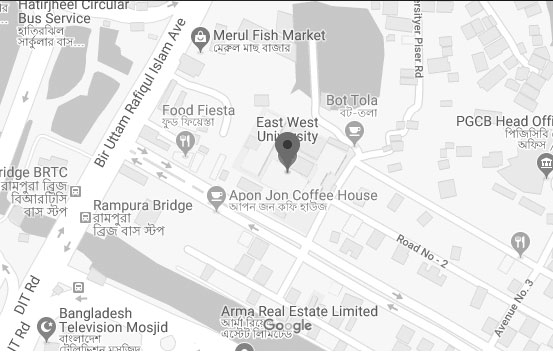Vision Statement of the Department:
To Provide Excellence in Education and Research to Produce Internationally Competent Pharmacists.
Mission Statement of the Department:
(i) To develop and provide the most comprehensive and highest quality pharmacy education.
(ii) To foster a learner-centered, research-oriented and need based teaching-learning environment.
(iii) To implement cutting edge research and innovative scientific discoveries in the field of drug discovery and development, and to incorporate it into the healthcare system.
(iv) To promote professional growth and development through lifelong learning.
(v) To integrate critical thinking, analytical ability, and leadership skills with ethical, moral, and social responsibilities to produce competent pharmacists.
Program Educational Objectives (PEOs) of the Department:
PEO1 : Distinguish themselves as leading pharmacists to continue advancements in pharmaceutical technologies.
PEO2 : Contribute in the field of drug discovery and development.
PEO3 : Provide pharmaceutical care with a sense of responsibility and ethical practice in Community, Hospital and Clinical pharmacy.
PEO4 : Able to deal with evolving challenges in pharmaceutical fields.
Graduate attributes or POs (Program objectives) of B.Pharm program:
The B.Pharm program has adopted twelve graduate attributes or PO’s which are listed as follows:
PO-1: Able to think critically to develop ability, to identify and solve issues related to the pharmaceutical industry, regulatory agencies, hospital and community pharmacy.
PO-2: Able to design, develop, and conduct pharmaceutical experiments.
PO-3: Able to describe therapeutic effects, mechanism of actions, pharmacological actions, pharmacokinetics, adverse effects of drugs, drug interactions and rational use of drugs.
PO-4: Able to describe the functions of biomolecules, physiological processes, and organ systems of the human body.
PO-5: Able to describe metabolism and toxicological studies (acute and chronic) of xenobiotics, clinical studies, adverse drug reactions and their management.
PO-6: Able to design and develop different types of formulations by choosing the most appropriate conditions and equipment for manufacturing different types of pharmaceutical dosage forms.
PO-7: Able to describe and perform proper quality control and quality assurance programs (regulatory) of pharmaceutical products.
PO-8: Able to study scientific literatures and write protocols, references, dissertations, and able to conduct survey to collect data related to the life sciences.
PO-9: Able to describe reaction mechanisms, stereochemistry, the physicochemical properties of organic molecules, and to synthesize simple drug molecules.
PO-10: Able to describe/ design drugs from natural and synthetic sources.
PO-11: Able to provide pharmaceutical care through skills of dispensing, compounding, rational uses, dosage calculations, pharmacogenetics, patient counselling and patient care.
PO-12: Able to communicate effectively to work in team with leadership skills.
Mapping of Program Outcomes (POs) to Program Educational Objectives (PEOs)



